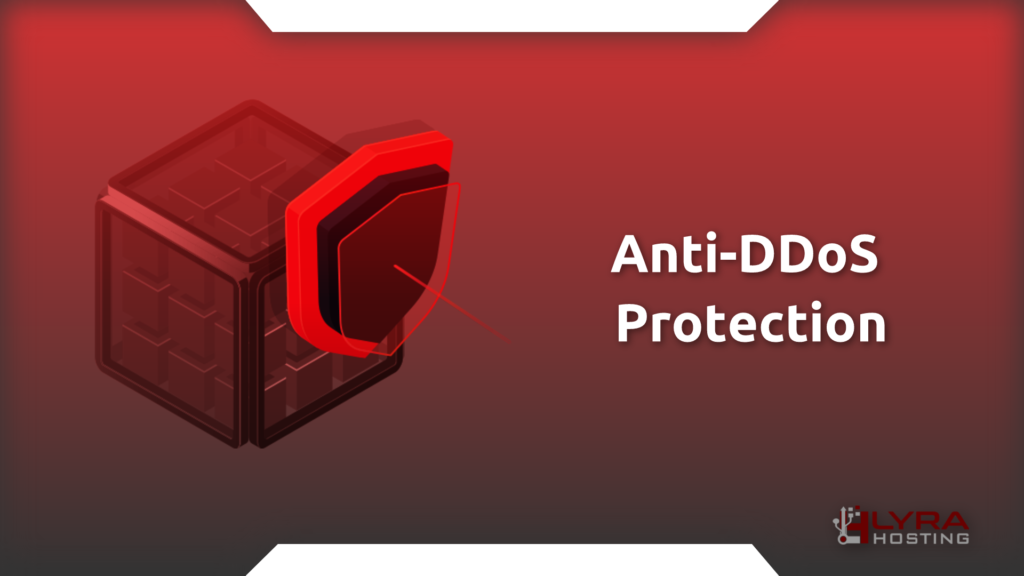Anti-DDoS Protection

Introduction
Distributed Denial of Service, also known as a DDoS attack, is a destructive effort to render a server or network device inaccessible to users by rescinding an owner’s Online services.
A DDoS assault employs several computers and Internet connections, frequently spread internationally in a botnet, to overwhelm targeted services with packets.
Anti-DDoS methods
Each form of DDoS attack has its defensive approach and tools:
Volume-based attacks
Volume-based attacks flood networking hardware or sites with requests. This includes UDP, ICMP, and faked network packet assaults.
Anti-DDoS companies use virtual machines to monitor traffic, delete harmful requests, and allow valid ones. This can handle gigabyte-scale DDoS assaults. DDoS deflation.
Protocol attacks
Protocol attacks use internet protocol flaws. SYN floods, broken packets, Ping of Death.
Anti-DDoS software restricts malicious activity before entering your website to prevent protocol assaults. Advanced systems can examine and distinguish between actual visitors and bots.
Application Layer Assault
Inside an application layer assault, hackers send many fake queries to web apps or other programs. GET/POST floods, low-and-slow assaults, or Apache or Windows weaknesses.
Anti-DDoS systems analyze website activity, prevent malicious bots accountable for application-layer assaults, and challenge unknown visitors using Html checks, cookie issues, and captchas.
Software Anti-DDoS
Anti-DDoS software analyzes and filters harmful communications. Anti-DDoS software is usually cheaper and easier to handle than hardware.
Computer and code methods only provide limited better security, are subject to errors, and won’t combat volume-based assaults. Locally installed software is more vulnerable to big assaults than devices or Internet alternatives.
Firewall Anti-DDoS
DDoS assaults flood the server/firewall with genuine requests.
Conventional firewalls struggle to stop DDoS assaults, frequently becoming the barrier and worsening the attack.
Changing network topology and improving firewall installation and configuration may reduce typical firewall shortcomings. Even with the best firewall setup and design, DDoS attacks may still harm.
Web application firewalls (WAF) may operate as an anti-DDoS barrier, weeding out malicious requests. They’re an efficient and affordable DDoS security solution. WAFs react to questionable application requests by delivering cookies or other responses, validating the user is genuine, and the query is legitimate before granting access to the network.
Hardware-based Anti-DDoS
Anti-DDoS gear protects your network physically. Anti-DDoS hardware can guard against certain assaults; however, DNS attacks are unaffected since the harm is done when information reaches the device.
Costly hardware security. In addition to the hardware’s initial cost, the facilities’ running costs and specialized labor are needed to sustain the store and operate it. Depreciation and improvements increase expenses.
Hosting Anti-DDoS
Partnering with a DDoS-ready server service may reduce the danger of a DDoS attack by absorbing bad traffic. Anti-DDoS hosting is ineffective and expensive.
Web admins have two Anti-DDoS hosting options:
1. Dedicated hosting is expensive and non-scalable.
Available to rent Webhosting is expensive and restricted by the company’s and policy’s capability.
Neither approach offers software DDoS protection. Anti-DDoS Webhosting is more expensive than other methods since collecting DDoS traffic costs money and lacks behavior/signature-based detection.
In conventional Anti-DDoS hosting, web admins pay for the capacity to withstand a prospective assault, even if none is happening. Identifying threats and scaling on-demand is more price-effective and adaptable.
2. Lyra Hosting’s Cloud-Based Anti DDoS Services
At Lyra Hosting, you may benefit from DDoS protection whether you choose offshore VPS, dedicated server, or shared web hosting. In order to prevent DDoS assaults from occurring, we use a sophisticated filtering mechanism. As a result, the vast majority of assaults are stopped in their tracks.
Our technology has enabled us to identify and respond to website traffic trends. DDoS attacks are stopped at the source, preventing any further damage. Lyra Hosting offers DDoS protection for L3, L4, and L7 assaults.
We have two major Anti-DDoS services which can protect your web servers. The first one is the Reverse Proxy Web, while the second one is the Premium Anti-DoS.
1. Reverse proxy
Our Reverse Proxy provides one of the most efficient forms of Layer 7 security. Our system has the capability to identify a distributed denial of service (DDoS) assault in real-time. Once it does so, it can immediately activate the required defenses to guarantee that the assault will be neutralized.
2. Premium Anti-DDoS Protection
To provide our Premium Anti-DDoS Protection, we merged our Reverse Proxy with a new IP DDoS Security solution competent in blocking the most serious Layer 3 and 4 assaults. LyraShield Anti DDoS technology is capable of lessening up to 1.5Tbps + / 250Mpps of harmful traffic.








